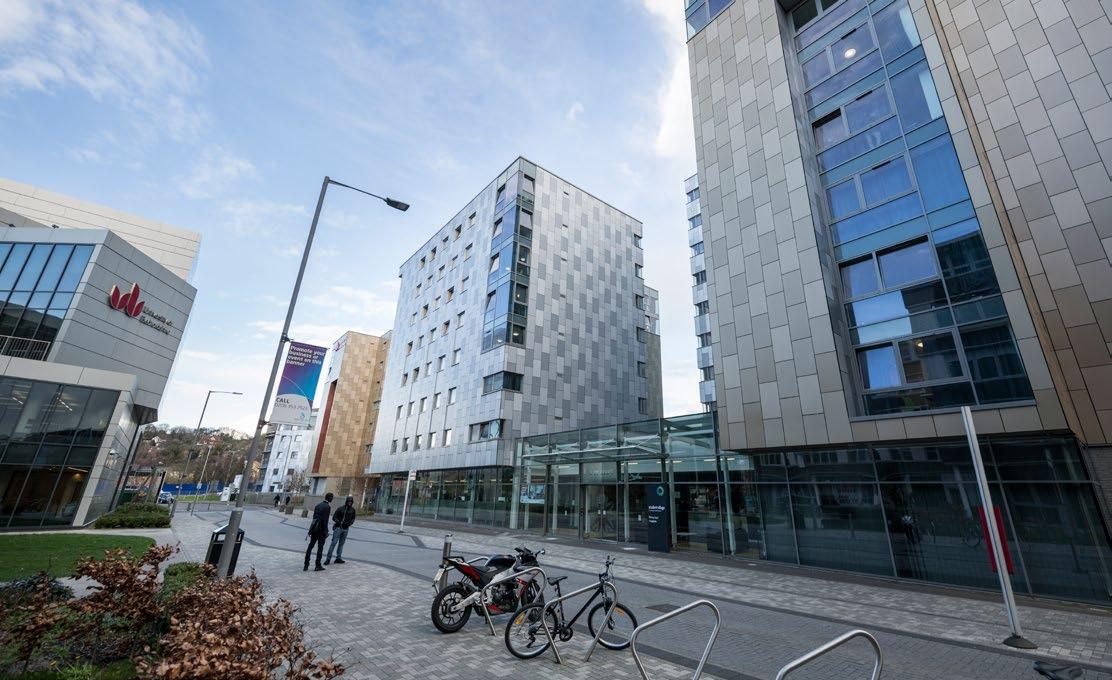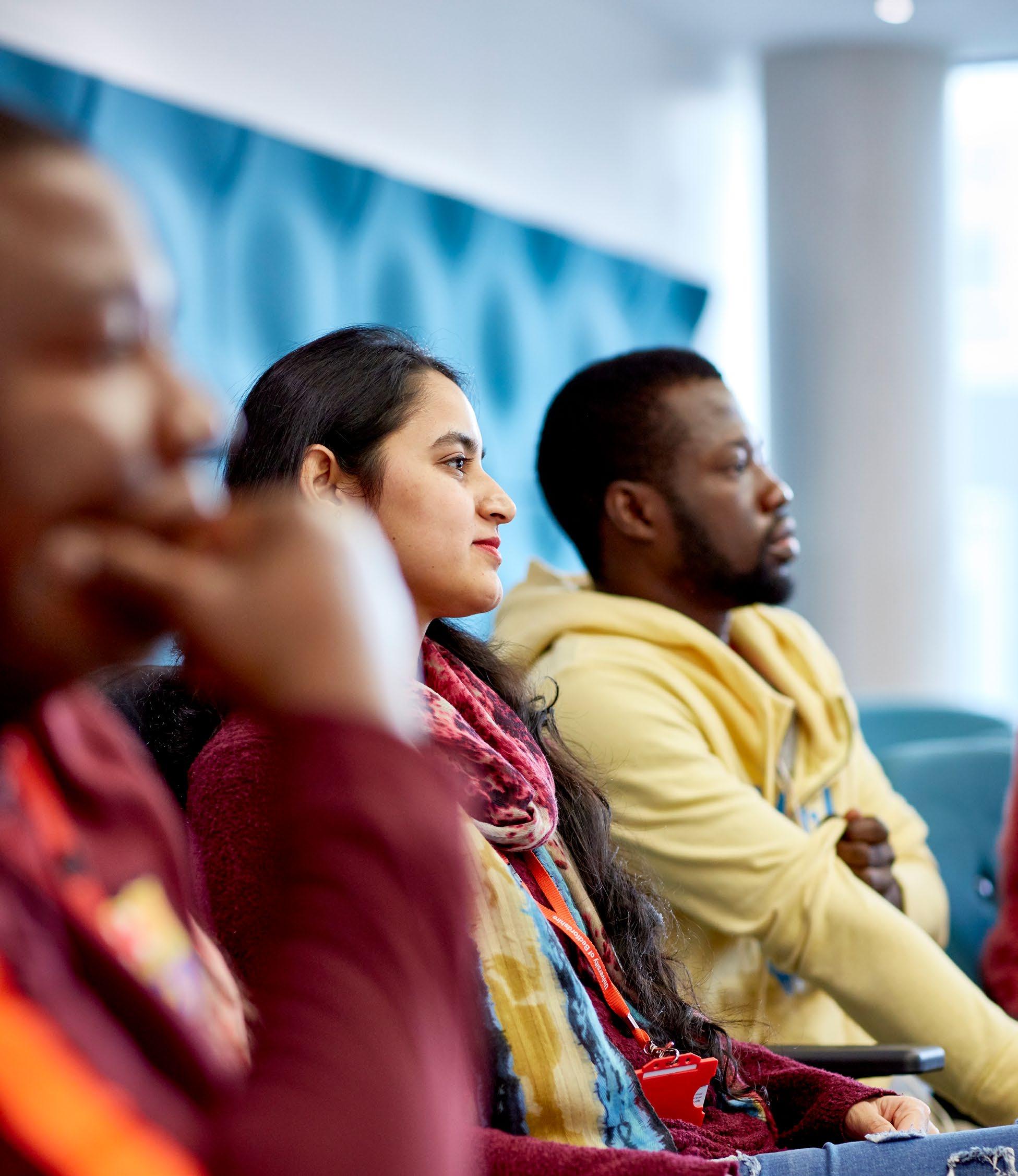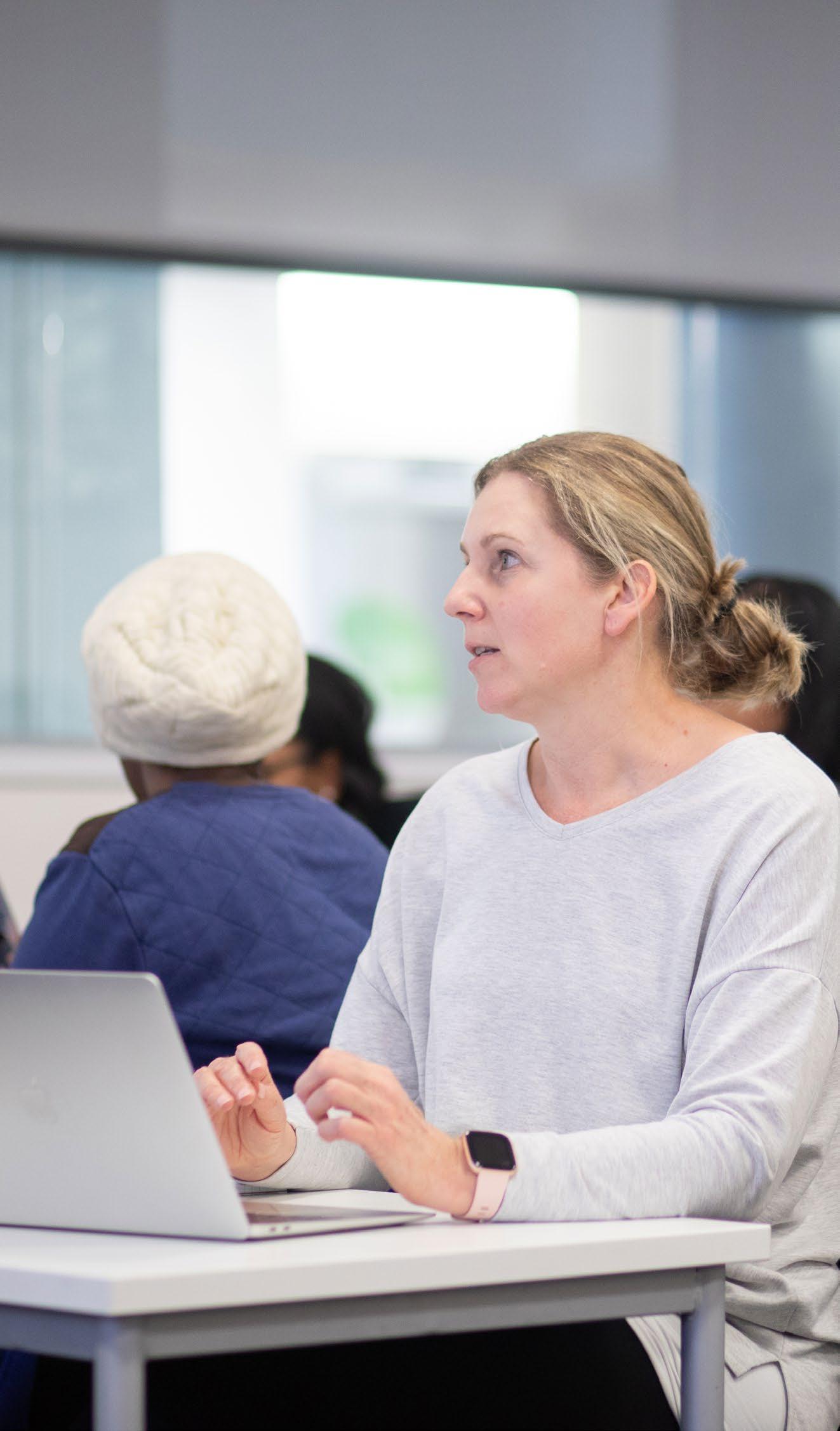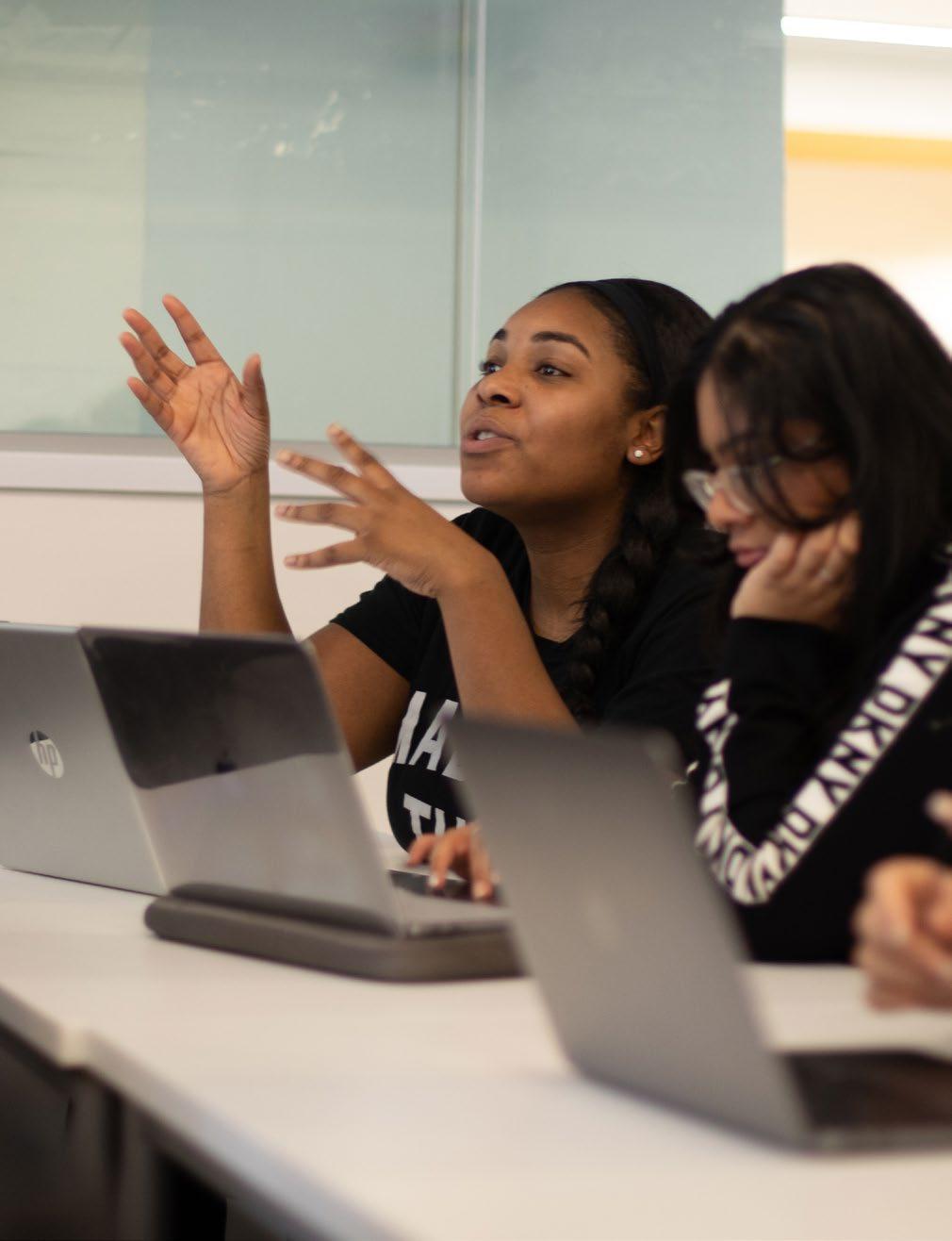


Faculty of Health & Social Sciences
School of Society, Community and Health
Begin@Beds







Faculty of Health & Social Sciences
School of Society, Community and Health
Begin@Beds



We are delighted that you will be studying with us. This booklet provides you with some key information that you will find useful in preparing you for your course and for your first few weeks and months at University.
Dr Lana Burroughs Head of School
Course Lead
Ayodhya Karunaratne ayodhya.karunaratne@beds.ac.uk
Your personal academic tutor is Email
Hello, my name is Ayodhya and I am the course lead. We are so excited that you will be joining us in September. The first week will be an induction week where you will be introduced to your course, course team and fellow students. You’ll also have a personal tutor who is there to support you. They will have weekly office hours so you can always book an appointment if you need to chat to them, we will be there with you every step of the way.
Ayodhya Karunaratne Course Lead

STUDENT SUPPORT SERVICES
Student Information Desk (SiD) beds.ac.uk/sid sid@beds.ac.uk
Treehouse Community & Faith Centre
Mental Health Services
beds.ac.uk/student-support/mentalwell mentalhealth@beds.ac.uk
BedsSU (student union) help@bedssu.co.uk

The following is a typical Welcome Week schedule:
am
Day 1
pm
Introduction to: Student support services, student union and library services. Ice breaker and social integration.
Meet the course team, afternoon tea with a ‘guess what am I’ anatomy quiz.
am
Day 2
Day 3 & 4
pm
A day in the life – what to expect, getting the most from Breo, Q&A with existing students, campus and simulation rooms tour.
First personal academic tutor (PAT) meeting, uniform ordering & meet some of the practice education team.
Occupational health and ID and document check appointments. Student Union events.
ESSENTIAL LINKS
For more information on joining your course, visit Begin BSc Physiotherapy @Beds where you will find updated info, tips and dates of your course induction week etc.
YEAR 1 STUDENTS WILL BE STUDYING
Professional identity
Academic skills
Human structure function and exercise
Holistic therapy in practice
Holistic physiotherapy assessment and intervention
Developing therapeutic relationships
How to find your Timetable
Information about your learning with BREO
Get support with your learning and assignments Study Hub
Visit the Library
Begin@Beds Start your student journey
Thrive@Beds My Beds Life
Succeed@Beds Careers and Employability Service

As you enrol on your professional course you will need to complete an enhanced DBS along with ID checks and an occupational health assessment. You will also be asked to read and sign your professional studies contract which is in line with the HCPC Standards of Conduct, performance and ethics which will guide you through your 3 year degree course.
Your clinical placement will be based with one of practice partners and you will also be given opportunities to experience different areas of practice throughout your journey to becoming a registered physiotherapist.
Here is a range of practice partnerships for practical placements:
• Barnet, Enfield & Haringey MH Trust
• Bedford Hospital
• Bedfordshire & Luton Wheelchair Service
• Bucks Healthcare Trust
• Cambridgeshire Community Services NHS Trust
• CNWL (Central and North West London NHS Foundation Trust)
• East & North Herts NHS Trust
• East London Foundation Trust (ELFT)
• Feed Up, Warm Up
• Hamberley Care Homes
• HCRG (was Virgincare)
• Herts Council adults with disabilities team
• Keech Hospice
• Lister Hospital
• Luton & Dunstable Hospital
• Luton Town Football Club
• Milton Keynes University Hospital NHS Foundation Trust
• Oxford Health NHS Foundation Trust
• Tibbs Dementia Charity
• Variety of Private Physiotherapy Providers
• Watford General Hospital


The course assessment strategy is closely aligned to the teaching and learning strategy which is designed to:
• have an immediate relevance to practice;
• draw on expertise-by-experience;
• foster active learning and be learner-centred in approach.
A distinct feature of the course is the range of assessment tasks, including those that allow you to undertake workplace relevant assessments that can have an immediate impact in practice. This helps put into practice what you are learning in university and increases your self-confidence.
Types of assessment for these units include:
Practical assessments
Essays
Leaflets/posters
Reflective case studies
Presentations
Service improvement proposals
Viva Voce – an oral exam, no writing
In class tests
Skills Documents – practice based learning
SOMETHING TO READ
• Physiotherapy – NHS
• School of Society, Community and Health – University of Bedfordshire
SOMETHING TO WATCH
• Unison the day in the life of a physiotherapist – Bing video
SOMETHING TO EAT
• Eating and drinking on-campus – University of Bedfordshire
ABOUT THE CAMPUS
• Luton

As a first year physiotherapy student you will begin your journey with teaching and learning for 11 weeks in semester one and the same for semester two.
This will prepare you for your practice placement which you will begin in semester two. You will receive teaching to prepare you for your placement.
Over the three years of studying you will complete 1040 placements hours and you require 1000 to pass this course. You will be provided with 5 different placement settings to equip you with a range of different learning experiences and to make you fully employable.
As this is a professional course you are expected to complete 1000 placement hours and attend all university teaching unless you have medical exemption or extenuating circumstances.
Sample timetable – Semester 1 Physiotherapy

When do I find out which placement area I have been allocated?
We aim to provide students with their placement locations as quickly as possible once these have been confirmed with the Trusts. What happens if I miss class due to being unwell or having difficulties with childcare or travel?
We understand that everyone will face some difficulties now and again and we aim to be flexible. You are encouraged to discuss ongoing issues with your Personal Academic Tutor or Unit Lead.
Is there someone who can help me with my assessments?
The lecturing team are always available to guide you with the theory based content and you might want to book a 1:1 tutorial with your Unit Lead. If you need more time to complete an
assignment, please contact Student Engagement and Mitigation (SEAM) who deal with extensions for assessments. Their email is mitigation@beds.ac.uk
Will I be able to practise skills before I attend placement and work with actual patients?
Absolutely. You will have scheduled simulation based learning included in your weekly teaching plan and this will provide excellent preparation for placement. Our state of the art simulation suite has an operating theatre, anaesthetic room and Post Anaesthetic Care Unit (PACU) which also doubles as a ward, A&E and maternity area for various learning opportunities. There is the dedicated occupational therapy ADL flat and the physiotherapy suite.
Is there somewhere for me to get support if I have a learning difference such as Dyslexia?
Yes! There is plenty of help available and students may be eligible for a Learning and Teaching Agreement, stating any reasonable adjustments needed for classroom learning and examinations. There is also help available for practice based learning.
Are there clubs and activities I can get involved with?
Yes! The Student Union will provide lots of information about the sporting clubs, activities and events available for all students at UoB. For more information visit bedssu.co.uk

Simulation suite beds.ac.uk/simulation
Learning Difference support information beds.ac.uk/student-support/disabilities2
We also have a Physiotherapy Society you can join.
There is a lot to take in when you begin studying on a professional course like this one. The teaching team have been working as physiotherapists for many years and here are some of our key reasons to ‘love this job’!
You will be with patients in their most vulnerable moments.
This is a true privilege.
You will experience things you never thought possible.
You will one day be the ‘teacher’ and the mentor responsible for helping a new student on their first day.
A physiotherapist has the brain of a scientist, the heart of a humanist and the hands of an artist.
You can keep studying after you qualify and there is no limit to the knowledge you can gain.
No two days are the same.
You will always be employable as physiotherapists are always in demand.
You become part of a small ‘family’ with the physiotherapy staff.
Everyone is helpful and wants you to do well.
You are given the opportunity to be a part of a unique experience every day.
The satisfaction you get from knowing you helped make a real difference to a patient is amazing.